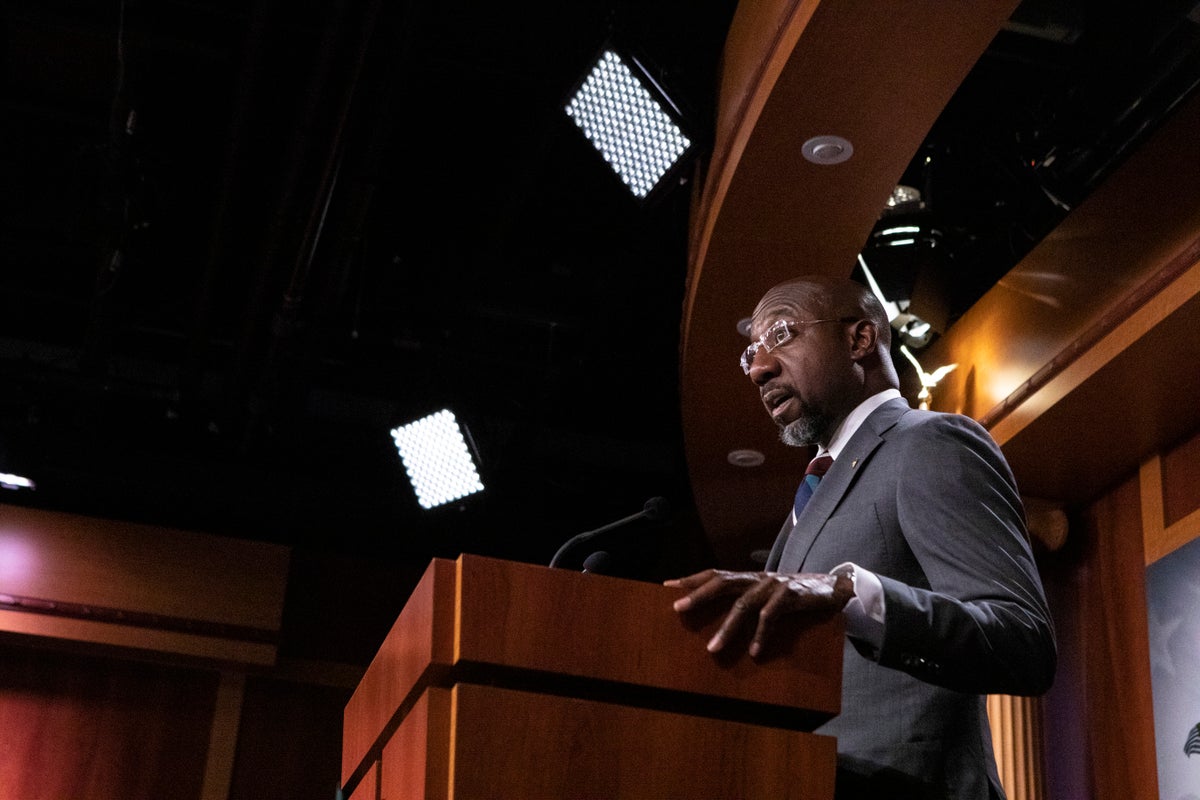
A new Atlanta Journal-Constitution poll showed that incumbent Georgia Republican Governor Brian Kemp and Democratic Senator Raphael Warnock have narrow leads.
The survey shows that 48 per cent of likely voters say they support Mr Kemp, compared to 43 per cent who say they support former state legislator Stacey Abrams. The two are in a rematch after Mr Kemp narrowly beat Ms Abrams in 2018. Ms Abrams never fully conceded her race to Mr Kemp because of allegations of voter suppression.
Mr Kemp staved off a primary challenge against former Senator David Perdue, whom former president Donald Trump endorsed after Mr Kemp refused to overturn the 2020 presidential election results.
Similarly, Democratic Senator Raphael Warnock--who won a special election last year--leads former University of Georgia running back Herschel Walker 46 per cent to 43 per cent. About 8 per cent said they are still undecided in the Senate race, which would be for a full six-year term.
“Both of these races are very close statistically”, University of Georgia political scientist Trey Hood, who conducted the poll, told The Atlanta Journal-Constitution. “There’s a long way to go before the general election, but a trend is emerging with recent polls: Kemp is consistently polling ahead of Abrams and Warnock is polling ahead of Walker.”
Both Mr Kemp and Mr Warnock lead with independent voters, with 33 per cent of them backing the governor and 38 per cent supporting the Senator. Meanwhile, 57 per cent of men support Mr Kemp but 51 per cent support Mr Walker. Conversely, 51 per cent of female voters support Ms Abrams while 55 per cent support Mr Warnock.
The campaigns are also split along racial lines, with only 10 per cent of Black voters supporting Mr Kemp and 67 per cent of white people supporting him while 28 per cent of white voters support Mr Warnock but 85 per cent of Black voters support him.
Mr Warnock’s lead comes despite President Joe Biden, who won the state two years ago, having a 60 per cent disapproval rating while 36 per cent of voters approving of him.
The University of Georgia’s School of Policy and International Affairs surveyed of 902 voters between July 14 and 22. It had a margin of error of 3.3 percentage points.







